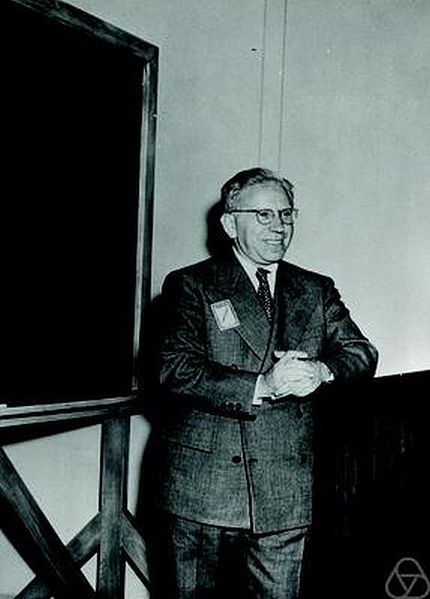<Back to Index>
- Mathematician Abraham Wald, 1902
- Writer Krišjānis Barons, 1835
- King of Poland Władysław III Warnenczyk, 1424
PAGE SPONSOR


Abraham Wald (October 31, 1902 – December 13, 1950) was a mathematician born in Cluj, in the then Austria – Hungary (present day Romania) who contributed to decision theory, geometry, and econometrics, and founded the field of statistical sequential analysis. He spent his researching years at Columbia University.
Being a religious Jew, he could not attend school on Saturdays, as was required at the time by the Hungarian school system, and was thus home schooled by his parents until college. His parents were quite knowledgeable and competent as teachers.
In 1927, he entered graduate school at the University of Vienna, from which he graduated in 1931 with a Ph.D. in mathematics. His advisor there was Karl Menger.
Despite Wald's brilliance, he could not obtain a university position, because of Austrian discrimination against Jews. However, Oskar Morgenstern created a position for Wald in economics. When the Nazis invaded Austria in 1938, the discrimination against Jews intensified. In particular, Wald and his family were persecuted as Jews. Wald was able to emigrate to the United States, at the invitation of the Cowles Commission for Research in Economics, to work on econometrics research.
Wald applied his statistical skills in World War II to the problem of bomber losses to enemy fire. A study had been made of the damage to returning aircraft and it had been proposed that armor be added to those areas that showed the most damage. Wald's unique insight was that the holes from flak and bullets on the bombers that returned represented the areas where they were able to take damage. The data showed that there were similar patches on each returning B-29 where there was no damage from enemy fire, leading Wald to conclude that these patches were weak spots and that they must be reinforced.
Wald and his wife died in an airplane crash in the Nilgiri mountains, in southern India, while on an extensive lecture tour at the invitation of the Indian government.
Following his death, Wald was attacked by Sir Ronald A. Fisher FRS; Fisher attacked Wald for being a mathematician without scientific experience who had written an incompetent book on statistics. Fisher particularly criticized Wald's work on the design of experiments, alleging ignorance of the basic ideas of the subject, as set out by Fisher and Frank Yates. Wald's work was defended by Jerzy Neyman in the following year. Neyman explained Wald's work, particularly with respect to the design of experiments. Lucien Le Cam credits in his own book, Asymptotic Methods in Statistical Decision Theory, The ideas and techniques used reflect first and foremost the influence of Abraham Wald's writings.